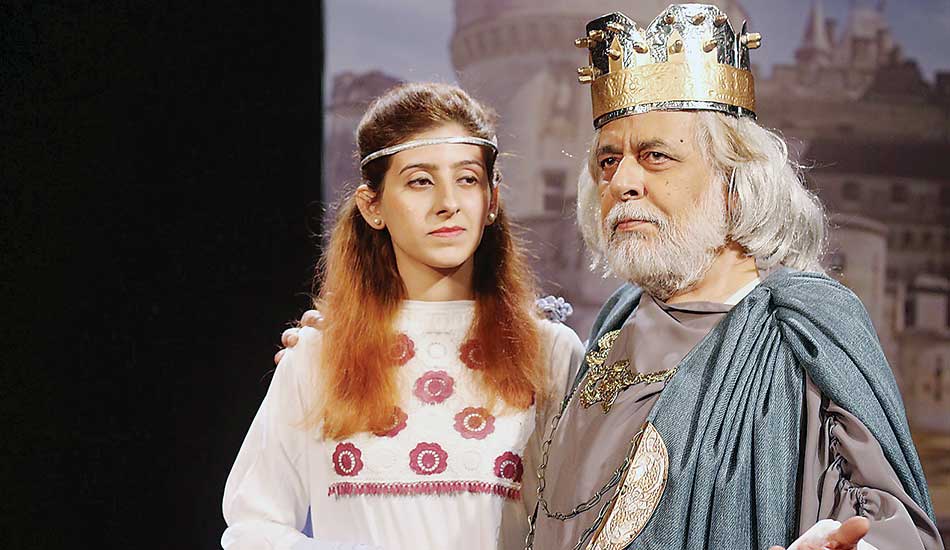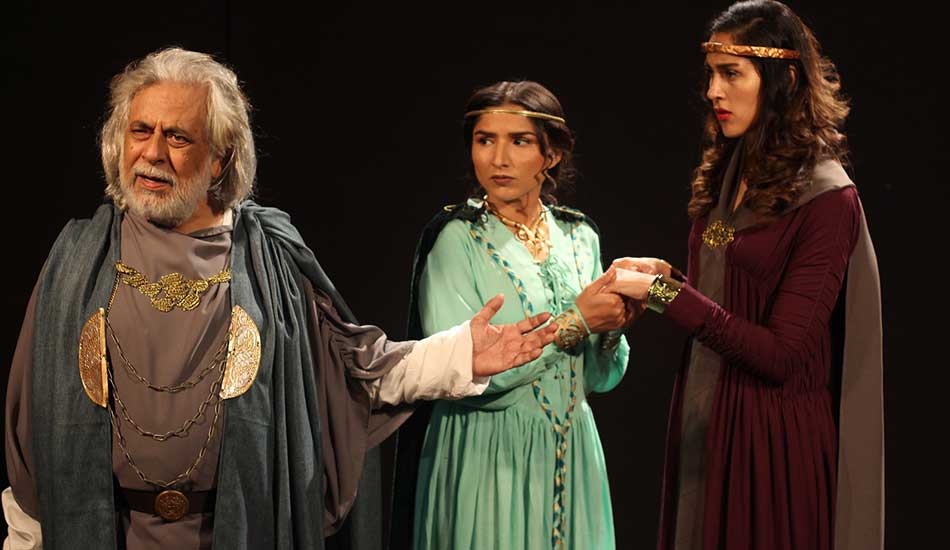Inside Scoop: Anant Ambani and Radhika Merchant’s Grand Pre-wedding Festivities
- 16 Mar - 22 Mar, 2024
King Lear opened on a chilly night; the colonial era architecture and infrequently visited NAPA makes any average Karachiite break into an impulsive smile. If I were to be honest, I’d say I was very unexcited and skeptic about an Urdu rendition of a Shakespeare play. The question does nag a little, “can a translated rendition do justice to a Shakespearean work?” The trick, it turns out, lies in the translation.

To a full house on the media night, I settle on the stairs since the auditorium was full beyond capacity. Transalated by Khalid Ahmed and directed by Zia Mohyeddin, King Lear opened to Karachi. The stage kept minimal, with decent lighting and sound and the costumes elaborate and fitting, the Shakespearean origin was kept alive. One thing that stood out as a little bizarre was the Elizabethan era names matched with Urdu but the audience seemed accustomed to them pretty quick.
An ageing Lear wants to divide his kingdom between three daughters as he dreams of resting in his old age. Flatteries works well with his kingship, and earns his two daughters half his kingdom each while the third [Cordelia] he disinherits because she fails to flatter him. Lear, with his men and his fool, given up his castle, Lear remains at the kindness and hospitality of his daughters, who show him anything but that. Betrayed by his blood, a broken Lear brought down to his knees in a raging storm, a scene from the original play that is famed to be one of his most moving. His kingship unsheltered under nature’s unforgiving storm, a rather dissonant fate. King Lear was a story traced with Sufism; annihilation of the ego and identifying himself disassociated with worldly matters, his confused state and feelings of insignificance were so phenomenally communicated, maybe nobody could’ve done it better than Khalid Ahmed.
The veteran actor’s arresting articulation brought King Lear to life for Karachi. His performance was moving and his translation even more so. A play with such complex character development could only have been done justice to if casted right. While the khaalis Urdu translation did seem forced for some young actors, I doubt anybody’s performance faltered on stage. Edmond’s, played by Paras Masroor, performance in his monologue was brilliant – he had the stage to himself and you could see him enjoying the attention – earned him laughs from the audience and established his character witty.

His naïve brother, Edgar’s [Nazar Ul Hassan] beggar avatar was a character development that left some eyes misty. The cold abashed mercilessly against the former nobleman, ripped of his luxuries by cruel intentions and lies, till fate gives him another chance to right some wrongs. Hassan’s act and dialogue delivery did justice to the character; his diction beautifully executed Edgar and you could tell the audience made a soft corner for him. Lear’s Fool played by Raheel Siddiqui was another character that managed to get chuckles out of the audience but at other times, the depth and pain of his words had the audience sighing at the cruelty of fate.
Earl of Gloucester, portrayed by Syed Meesum Naqvi, another character that won with the audience with his credulous nature and ill-fate that played out, driving his legitimate son Edgar into hiding and leaving him to the falsely displayed loyalty of his illegitimate son Edmund. His was the journey that had the audience wincing with him in his pain as he was punished. The sword fights that followed were well coordinated and gripping.
For the final bow, it was no surprise the audience was on their feet and it thundered appreciation and when Khalid Ahmed walked in last, he earned the standing ovation. The Urdu translation was so well received; it hit the audience hard, its depth, philosophy and poetry received the wah wahs and hayes of the mushairas proving Karachi has a big stomach for performing arts and a bigger love of celebrating Urdu. The translation that beautifully captured the soul of the original play and the skillful presentation over two hours and 45 minutes was brilliantly executed. King Lear deserved a bigger stage.
COMMENTS